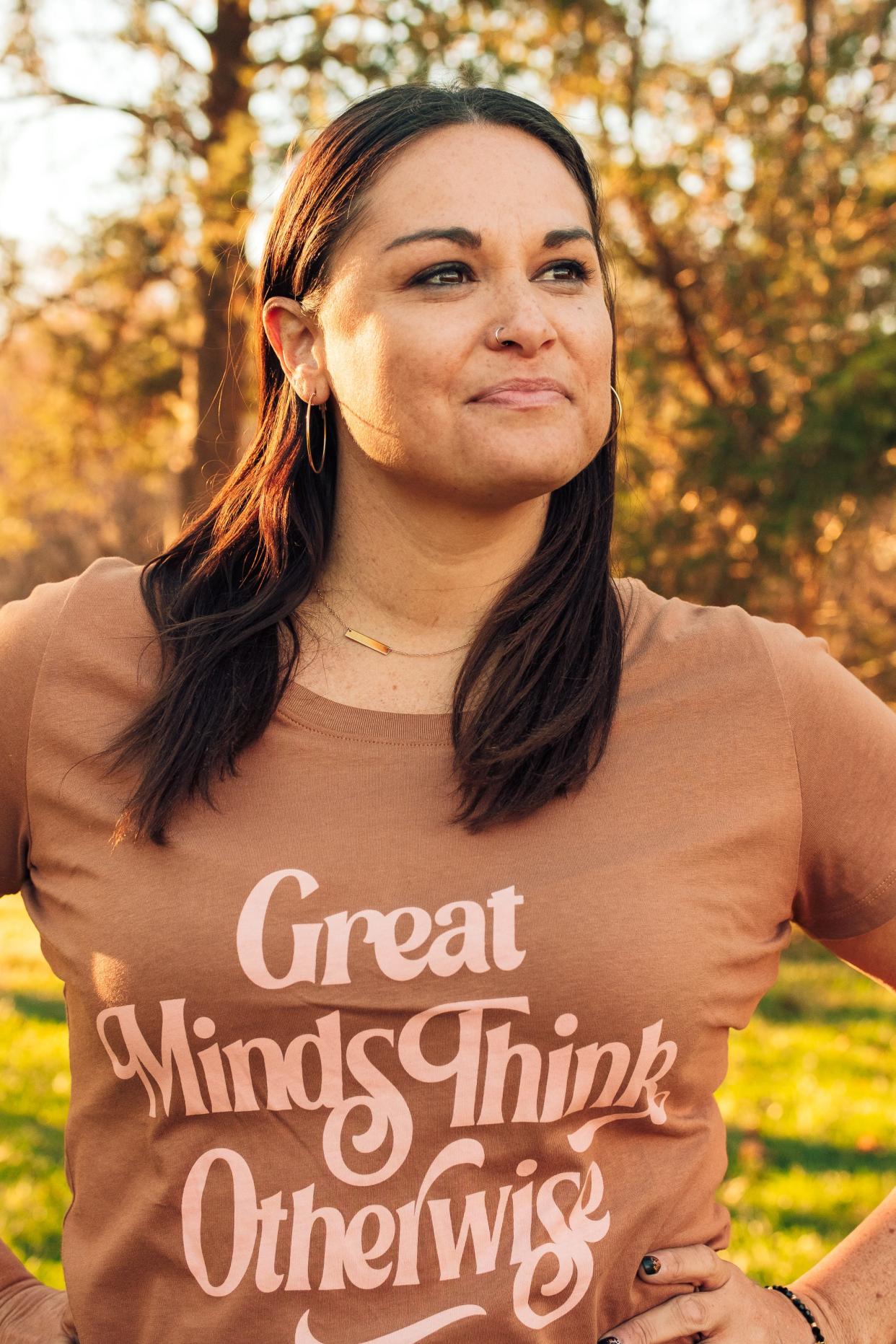‘Equity work requires so much self-reflection’: Meet the Women of the Year Nebraska honoree

- Oops!Something went wrong.Please try again later.
Nicky Clark is one of USA TODAY’s Women of the Year, a recognition of women who have made a significant impact in their communities and across the country. The program launched in 2022 as a continuation of Women of the Century, which commemorated the 100th anniversary of women gaining the right to vote. Meet this year’s honorees at womenoftheyear.usatoday.com.
When Nicky Clark was a little girl, she once complained to her Grandma Shirley about another child being mean to her. She was looking for empathy. But Grandma Shirley, in all her wisdom, told her granddaughter something that’s stuck with Clark for nearly 30 years: “You never know what someone else has been through and how that’s shaped their interactions with the world.”
Now 38 and the executive director of Elevate Omaha, a nonprofit focused on shifting power to young people and helping them become better leaders and advocates, Clark often reflects on Grandma Shirley’s words.
“Her telling me that really helped reframe everything,” Clark told USA TODAY. And it sparked in Clark a deep desire to understand where everyone was coming from.
Later, that grew into a passion for advocacy. A longtime social worker, Clark’s had a front-row seat to the foundational inequity throughout America – and she’s committed to building a better system by empowering young leaders, convinced that “young people have the answers, they have the solutions. It’s just that they often aren’t valued in the same way.”
For her dedication to consistently elevating young voices, Clark has been selected as the Nebraska honoree for USA TODAY’s Women of the Year.
This conversation has been edited for length and clarity.
Who paved the way for you?
I had a supervisor when I first got into social work, Joanna Lindberg, who brought me along to everything. She involved me when we did the budgets. When we were meeting with people who entry-level people like me wouldn’t usually meet with, she invited me in. That helped me quickly gain skills and see how systems were working.
That was huge for me. People listened to my ideas because of her. I always credit her for sharing power. I think very few people understand how important that is – and I try to do that now for the young people I work with.
Do you have a proudest moment?
Graduating from college with my undergraduate degree in psychology and Spanish from University of Nebraska at Kearney in 2008. I was one of the first people in my family to do that.
College was really hard. I didn’t have a lot of people to guide me or even explain how it worked. I remember sitting down with the librarian from my high school, and she explained majors and minors, because I didn’t know what those were. I didn’t do the FAFSA my first year because I didn’t know I was supposed to – and when I got hit with my tuition bill, I thought I could just go to the financial aid office. I get there and they said, “Oh no, you should have done this already.” But nobody told me that.
Throughout college there were multiple times I thought, “I don’t know how I’m going to do this, I don’t know how I’m going to graduate, how I can pay for my books, how I’m supposed to work and also go to school.” It’s a system that wasn’t built for me so when I graduated, I remember my parents were there, and I was proud because they were so proud.
Do you have a lowest moment?
When we first brought on a lot of young adult staff at Elevate Omaha, they really challenged me to look at things differently. That was so hard. I remember questioning myself and understanding, I’m not truly equitable. I had to do a ton of self-reflection and be open to what people were saying. Now reflecting is more of a daily routine and I know myself so much better because of it but I had to question a lot of my own work: should I be in this space or that space, should I take up space, when do I need to step back? I’m still working through it. Equity work in particular requires so much self-reflection.
Do you have a guiding principle or mantra?
My main value in life is respect. That really guides me in how I interact with people. Especially in my work and in self-reflection, when someone comes to me, instead of immediately getting defensive of my work I think, “In what way could they be right?” That really changes your perspective.
How do you overcome adversity?
It’s the self-reflection piece, and reframing your experience. And – this is not something I do naturally, I’ve had to learn – being flexible and able to pivot.
There’s a book, Emergent Strategy, that talks about “never a failure, always a lesson.” That’s super helpful to frame things when you’re like, ugh, I really screwed that up. No, it's, what can I learn from this?
What advice would you give your younger self?
I was such a perfectionist when I was young, and once I was able to understand how that was holding me back and that it was actually super debilitating, I was able to take more risks and my career really opened up. I became a happier person as an individual and I was able to experience joy in a way I hadn’t before. So just that idea that perfectionism is debilitating, I would tell her that.
2022 Women of the Year: Carmen Tapio doesn’t just lead Nebraska’s largest Black-owned business. She’s building the next one.
Women of the Century: Cathy Hughes, one of most powerful women in broadcasting, among Nebraska’s influential women
This article originally appeared on USA TODAY: Elevate Omaha executive director receives Women of the Year honor

